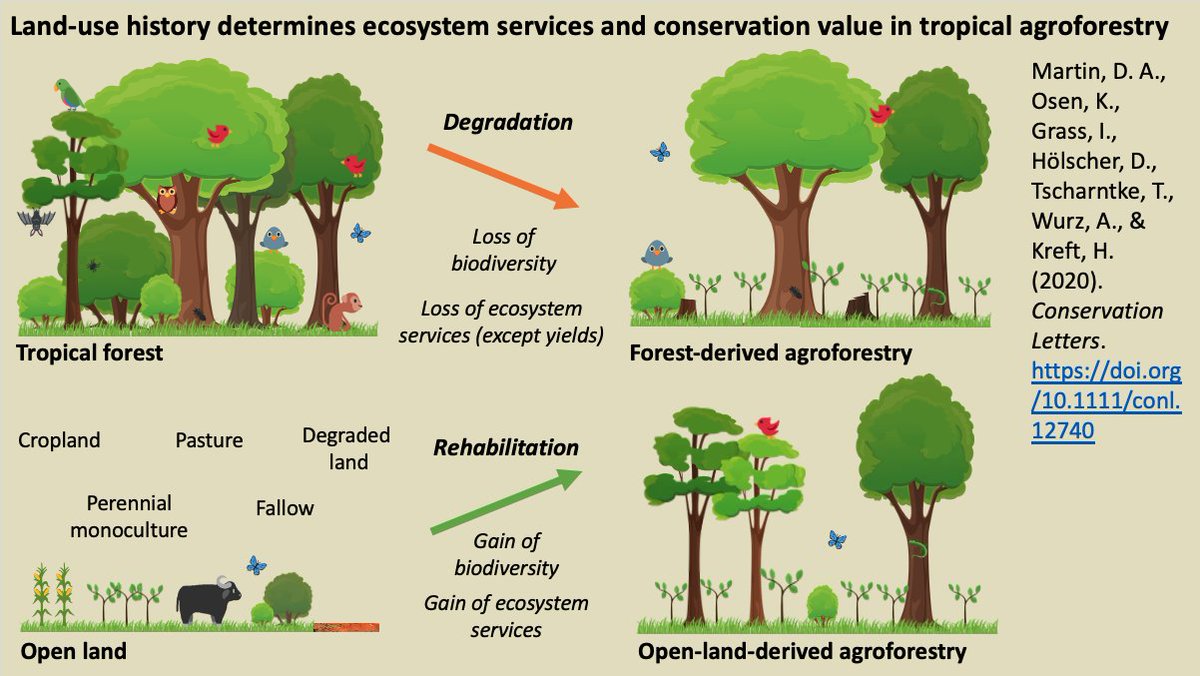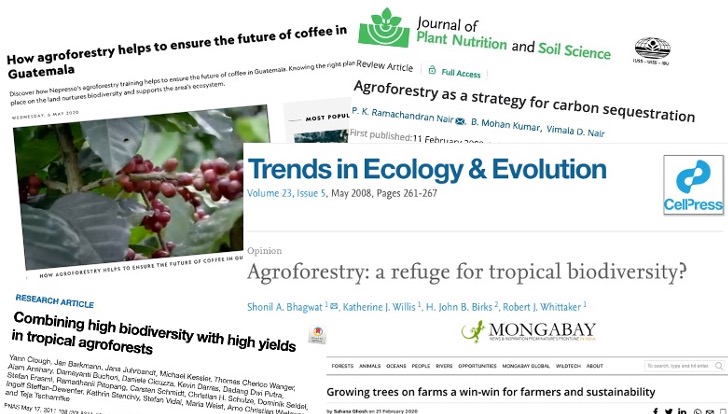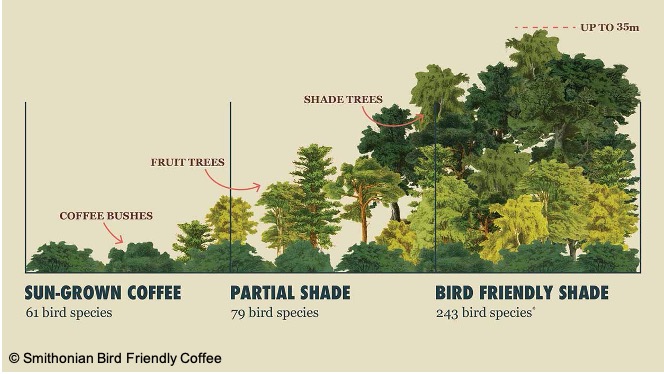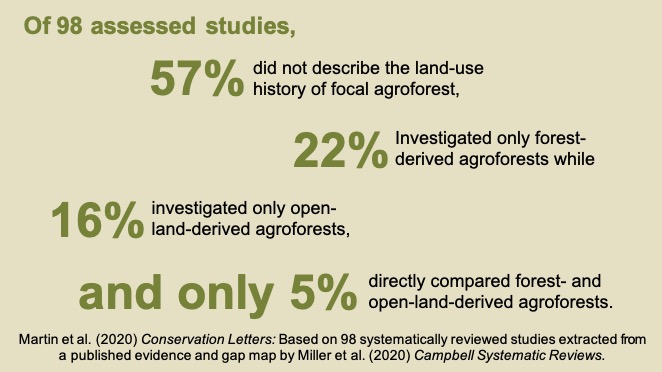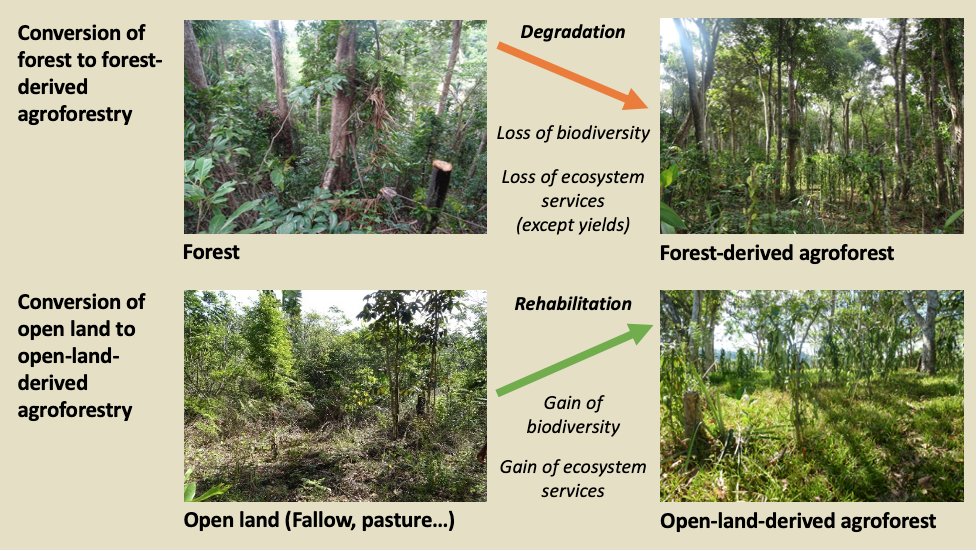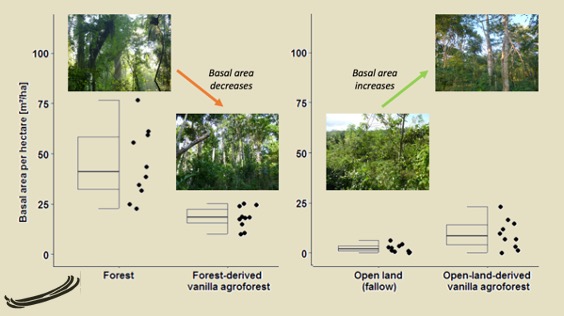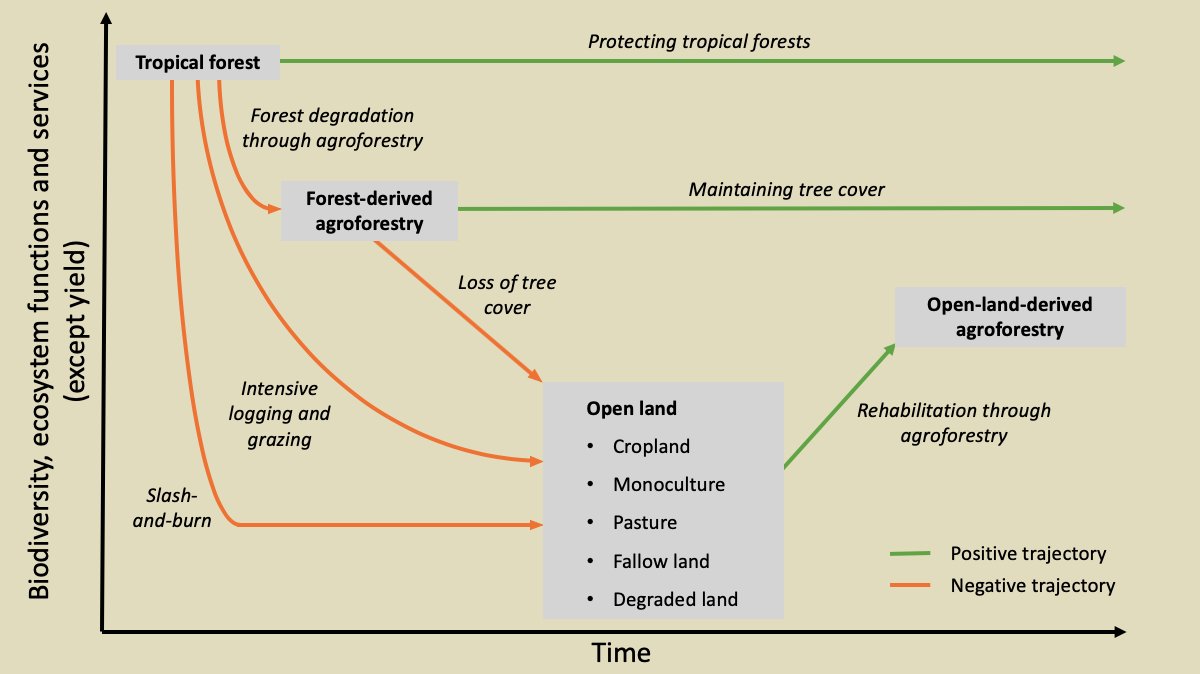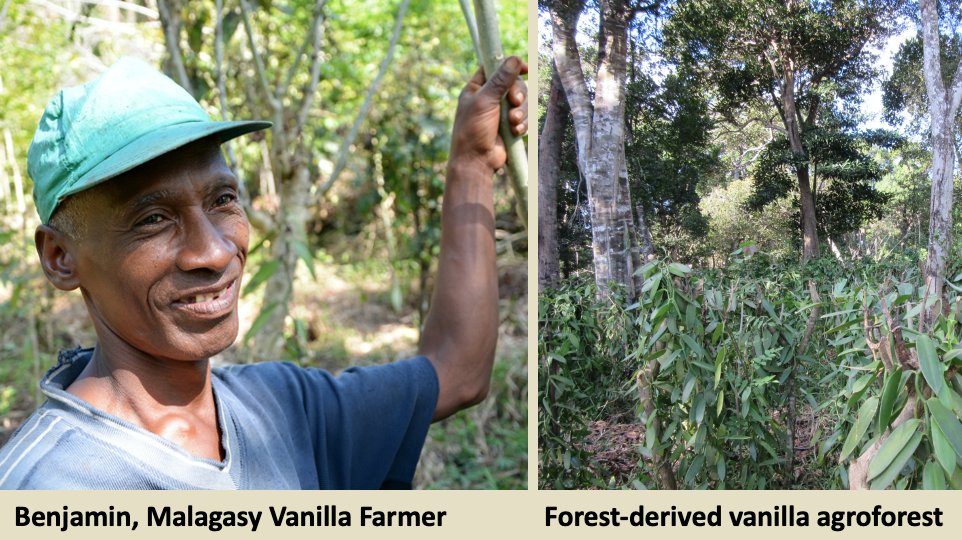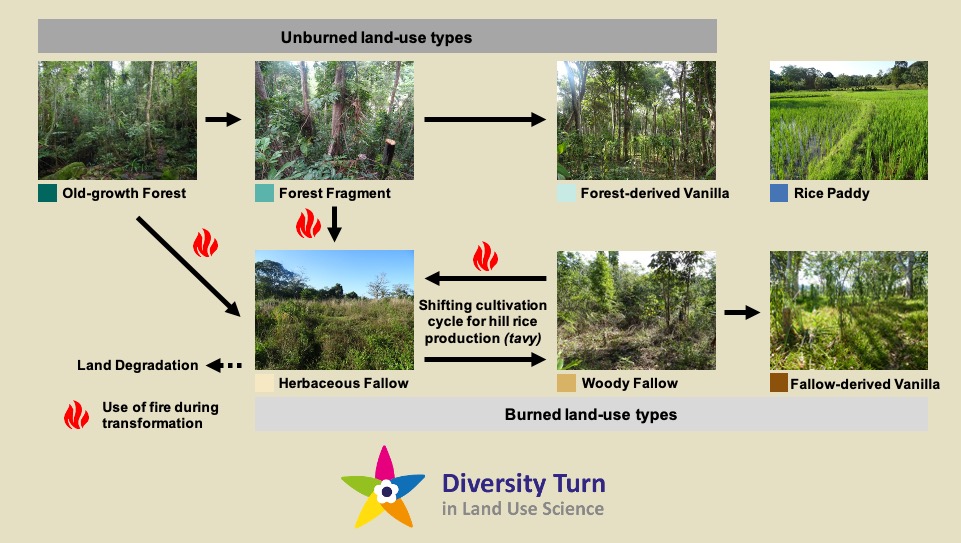1/12 Thrilled to have my first PhD chapter out in @ConLetters!
We show that it’s necessary to include land-use history in tropical #agroforestry research and policy.
A thread for scientists and coffee lovers alike!
for scientists and coffee lovers alike! 

Paper link: https://doi.org/10.1111/conl.12740
@uniGoettingen
We show that it’s necessary to include land-use history in tropical #agroforestry research and policy.
A thread
 for scientists and coffee lovers alike!
for scientists and coffee lovers alike! 

Paper link: https://doi.org/10.1111/conl.12740
@uniGoettingen
2/12 Tropical agroforestry for crops like #coffee, #cacao or #vanilla is often seen as an opportunity to conserve ecosystem functions and #biodiversity…
…while also providing an income opportunity for smallholder farmers.
…while also providing an income opportunity for smallholder farmers.
3/12 To assess the value of agroforests for biodiversity and ecosystem functions, researchers have typically compared structurally simple against structurally complex agroforests.
What did they find? Structurally complex agroforests are better!
What did they find? Structurally complex agroforests are better!
4/12 Consequently, local and global policies, such as sustainability #certification, support farming practices that maintain structural complexity in the form of shade trees.
You might be familiar with “shade coffee” or “bird friendly coffee”.
You might be familiar with “shade coffee” or “bird friendly coffee”.
5/12 However, in our paper, we argue that the focus on structural complexity in research and policy is too simplistic:
Instead we should incorporate land-use history – i.e. the previous land-use - in #agroforestry research and policy.
Instead we should incorporate land-use history – i.e. the previous land-use - in #agroforestry research and policy.
6/12 Why?
Forest-derived agroforests degrade tropical forests
Open-land-derived agroforests typically rehabilitate historically forested open land.
So the effect is contrary depending on land-use history!
Forest-derived agroforests degrade tropical forests
Open-land-derived agroforests typically rehabilitate historically forested open land.
So the effect is contrary depending on land-use history!
7/12 We exemplify this using data from the @Diversity_Turn #vanilla agroforest plots in #Madagascar.
Basal area decreases when forest-derived agroforests are established, but increases when fallow land is converted into open-land-derived agroforest.
Data by @osen_kristina
Basal area decreases when forest-derived agroforests are established, but increases when fallow land is converted into open-land-derived agroforest.
Data by @osen_kristina
8/12 Importantly, forest-derived agroforests will typically still outperform open-land-derived agroforests in terms of #EcosystemServices and #Biodiversity.
BUT what matters is the change compared to the previous land-use!
To illustrate this, we came up with this framework:
BUT what matters is the change compared to the previous land-use!
To illustrate this, we came up with this framework:
9/12 Policies should aim at:
- Protecting tropical forest
- Maintaining tree cover in existing forest-derived agroforests
- Encourage #rehabilitation through open-land-derived agroforestry
@ICRAF @agroforestrynw @FAOForestry
- Protecting tropical forest
- Maintaining tree cover in existing forest-derived agroforests
- Encourage #rehabilitation through open-land-derived agroforestry
@ICRAF @agroforestrynw @FAOForestry
10/12 In summary, our paper shows that incorporating land-use history in tropical #agroforestry research and policy is necessary to realise the potential of agroforestry for people and nature.
11/12 Within the @Diversity_Turn project we specifically compare #vanilla agroforests of contrasting land-use history with their respective baseline.
More research on ,
,  ,
,  ,
,  ,
,  ,
,  ,
,  , yields & ecosystem functions is under review or preparation!
, yields & ecosystem functions is under review or preparation!
Follow us for more!
More research on
 ,
,  ,
,  ,
,  ,
,  ,
,  ,
,  , yields & ecosystem functions is under review or preparation!
, yields & ecosystem functions is under review or preparation!Follow us for more!
12/12 Thanks to my great co-authors @osen_kristina, @GrassIngo, D. Hölscher, T. Tscharntke, @annemarie_wu & @BioGeoKreft
& @Diversity_Turn, @BioGeoMacro, @VolkswagenSt funding
& @daniel_c_miller & @olivierhonnay for editing & reviewing
OA paper: https://doi.org/10.1111/conl.12740
& @Diversity_Turn, @BioGeoMacro, @VolkswagenSt funding
& @daniel_c_miller & @olivierhonnay for editing & reviewing
OA paper: https://doi.org/10.1111/conl.12740
. @uniGoettingen prepared a press release about the paper!
German : https://www.uni-goettingen.de/de/3240.html?id=5907
: https://www.uni-goettingen.de/de/3240.html?id=5907
English : https://www.uni-goettingen.de/en/3240.html?id=5908 https://twitter.com/uniGoettingen/status/1272451360890523650
: https://www.uni-goettingen.de/en/3240.html?id=5908 https://twitter.com/uniGoettingen/status/1272451360890523650
German
 : https://www.uni-goettingen.de/de/3240.html?id=5907
: https://www.uni-goettingen.de/de/3240.html?id=5907English
 : https://www.uni-goettingen.de/en/3240.html?id=5908 https://twitter.com/uniGoettingen/status/1272451360890523650
: https://www.uni-goettingen.de/en/3240.html?id=5908 https://twitter.com/uniGoettingen/status/1272451360890523650

 Read on Twitter
Read on Twitter